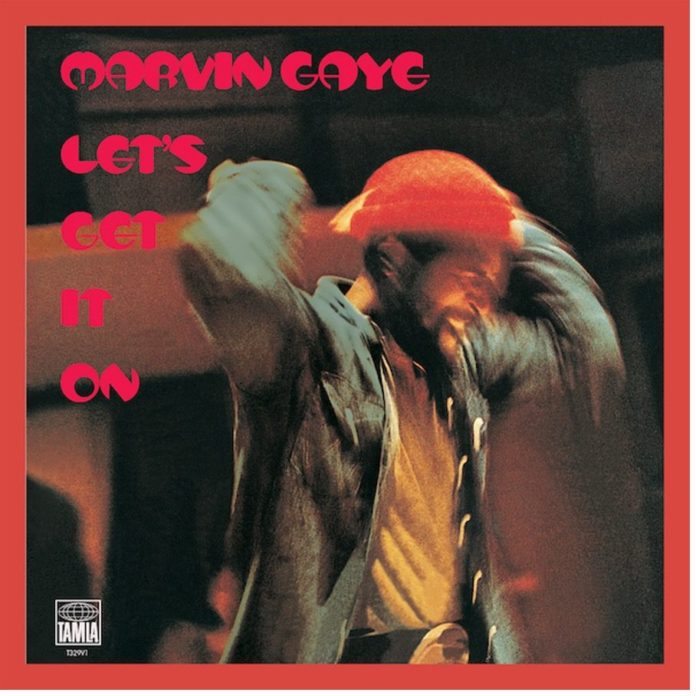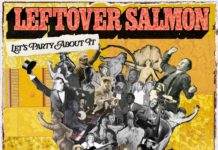In celebration of the Golden Anniversary of the iconic Marvin Gaye album Let’s Get It On, Motown/UMe/Universal Music Canada is releasing digitally a revised and expanded Let’s Get It On: Deluxe Edition on August 25, 2023, three days before the album’s original release date in 1973 fifty years prior. Featuring a fascinating trove of 33 bonus tracks, 18 of them previously unreleased, the Prince of Soul’s creative explorations continued to unfold with the production of this pivotal release. Collectively, the bonus material leans into the story of Gaye’s multi-layered personal struggles during the album’s creation. To honor this milestone, a Let’s Get It On event will take place at the GRAMMY Museum on August 23 featuring Smokey Robinson, Jimmy Jam, and Marvin Gaye biographer David Ritz. Get tickets HERE.
Comprised of tracks recorded during an intense six months of sessions in Los Angeles in ’73, this newly enriched Let’s Get It On: Deluxe Edition presents the album’s original eight songs alongside unheard mixes and material from all the sessions along the way, in addition to a trove of funky and fascinating instrumental tracks – and unreleased versions of the ballad recordings Marvin returned to time and again.
To further commemorate the record’s golden anniversary, the original album will be available in Dolby ATMOS. In the coming weeks, Motown/UMe will premiere new video content for select tracks, and an e-commerce-only colored vinyl edition of the original album.
After the success of What’s Going On and the following album, the proto-acid-jazz soundtrack to Trouble Man, Gaye had won Motown’s trust. The freedom was liberating but also fueled a heightened uncertainty about where to take his career. At a personal crossroads involving relocation to Los Angeles, a fraying marriage, a budding romance with Janis Hunter, who attended the initial sessions, and a driving need to experiment, Gaye found a steam valve in creating a suite of erotically charged yet emotionally vulnerable songs. But the final album lineup was drawn from a series of different sessions, resulting in a wealth of vaulted material.
Marvin’s first step in early ’73 was to seek out Ed Townsend, the artist, songwriter and producer best known for his 1950s ballad hit, “For Your Love.” He initially had Townsend guide him through ballad arrangements created especially for Marvin by arranger/pianist Bobby Scott in 1966, tracks he obsessed over for years. But these versions of the ballads, like ones Marvin recorded earlier, were left behind; the revealing, previously unreleased ’73 versions are included on the new Let’s Get It On: Deluxe Edition. (Later vocals were included on the posthumous release, Vulnerable.)
Simultaneously, sharing their mutual vulnerability, Marvin and Ed wrote new material that eventually became Side 1 of the Let’s Get It On album.
“I’d just come out of rehab, where I’d beaten a monstrous addiction to alcohol,” the late Townsend said. “I was looking to move ahead with my life – to ‘get it on.’ Marvin grasped this completely. But he didn’t stop learning the lyrics. He bypassed superficiality, questioning where you were coming from when you composed the song. He couldn’t just sing it; he had to connect with it as deeply as he’d written it himself.
“I witnessed the pain he was going through in his life; I was also blessed to witness the joy of an artist fully engaging with his work.”
With Townsend and veteran arranger Rene Hall, and a slew of stellar session musicians, including veteran saxophonist Plas Johnson, guitarist Melvin “Wah Wah” Ragin, jazz drummer Paul Humphrey and the Crusaders’ Wilton Felder on bass, Gaye recorded six songs, completing three, transforming the hopeful theme of what became the album’s title song into a call for spiritual sex. Again, he moved on.
Marvin reunited with David Van DePitte — the Detroit arranger who unified What’s Going On into a cohesive suite — and they delivered blazing cuts with a few of the same musicians, plus Herbie Hancock on piano, who met “Wah Wah” for the first time during these sessions and would go on to collaborate with him on several albums; guitarists John Morell, then with Shelly Manne’s band and soon a veteran of countless hits, and Richard Bennett, who became a key member of Neil Diamond’s band for nearly two decades and later produced Emmylou Harris. James Jamerson, the original Motown Funk Brother who was also new to LA, switched off on bass with Felder. Yet Marvin left those tracks behind, too.
Nothing hung together until Motown, watching months fly by without a new Marvin Gaye record, pulled “Let’s Get It On” from the tapes and rush-released it as a single before an album was finished. Alongside new hits from Motown’s own Stevie Wonder, Smokey Robinson (in his solo debut), Eddie Kendricks, and Diana Ross, “Let’s Get It On” shot to No. 1 Pop (2 weeks) and R&B (6 weeks). The company’s first full year on the West Coast was proving a resounding success.
During the song’s climb to the top, Let’s Get It On the album began taking shape. Gaye built upon tracks that originated in Detroit in the fall of 1970 – the Side 2 gems “Come Get To This,” “Distant Lover” (the album’s second single) and “Just To Keep You Satisfied” – while also finalizing additional selections from the Townsend sessions and his own, provocative “You Sure Love To Ball,” which was eventually the third single from the album. Let’s Get It On stayed No. 1 on the Soul Albums chart for 11 weeks in the fall of 1973 while peaking at No. 2 Pop.
Inducted into the GRAMMY Hall of Fame in 2004, Let’s Get It On represents a pivotal moment not only in the career of Marvin Gaye but in the evolution of soul music. Gaye gave voice to intimate desire in a way that was lightning charged. At the time, he claimed it was spiritually guided. Fifty years on, it’s never been more apparent that he was telling the truth.
In the acclaimed biography, Divided Soul: The Life of Marvin Gaye, author David Ritz put the project into perspective with the following summation: “The paradox is this: The sexiest of Marvin Gaye’s work is also his most spiritual. That’s the paradox of Marvin himself. In his struggle to wed body and soul, in his exploration of sexual passion, he expresses the most human of hunger—the hunger for God. In those songs of loss and lament—the sense of separation is heartbreaking. On one level, the separation is between man and woman. On a deeper level, the separation is between man and God.”
TRACK LIST
Original Album *
- Let’s Get It On
- Please Stay (Once You Go Away)
- If I Should Die Tonight
- Keep Gettin’ It On
- Come Get To This
- Distant Lover
- You Sure Love To Ball
- Just To Keep You Satisfied
Single Edits
- Let’s Get It On (single version) *
- You Sure Love To Ball (single version) *
- If I Should Die Tonight (original LP edit) *
Album Bonus Tracks
- Let’s Get It On – demo **
- Let’s Get It On – Pt. II (a.k.a. Keep Gettin’ It On) **
- I Knew One Day My Day Would Come (instrumental)
- Interlude #1
- Please Stay (Once You Go Away) – alternate mix 1 **
- Lovely Lady (instrumental)
- If I Should Die Tonight – demo **
- I Don’t Have To Get High To Do It (instrumental)
- Come Get To This – alternate mix 1 **
- Distant Lover – alternate mix 1 **
- You Sure Love To Ball – alternate mix 1 w/alternate vocal **
- Just To Keep You Satisfied – alternate mix w/alternate vocal **
- Interlude #2
- If I Should Die Tonight – SaLaAM ReMi’s Piano Mix
- Just To Keep You Satisfied – John Morales’s Stripped Mix
The David Van DePitte Sessions
- Song #1 (instrumental)
- Song #2 (instrumental)
- Song #3 (instrumental) **
- Song #4 (partial vocal)
- Shake Well (instrumental)
- Perfection (instrumental)
- Cakes (instrumental) **
- My Love Is Growing (Super Polished) **
Vulnerable: The 1973 vocals
- She Needs Me
- Why Did I Choose You
- Funny, Not Much
- This Will Make You Laugh
- The Shadow Of Your Smile
- I Wish I Didn’t Love You So
- I Won’t Cry Anymore
* Previously released
** Previously released bonus songs with fresh mixes
All other tracks are previously unreleased.
The newly revised Deluxe Edition replaces a deluxe edition first released in 2001, as most of its bonus tracks are now available in the previously vaulted album of 1972 recordings, You’re the Man, issued by Motown/UMe in 2019.







